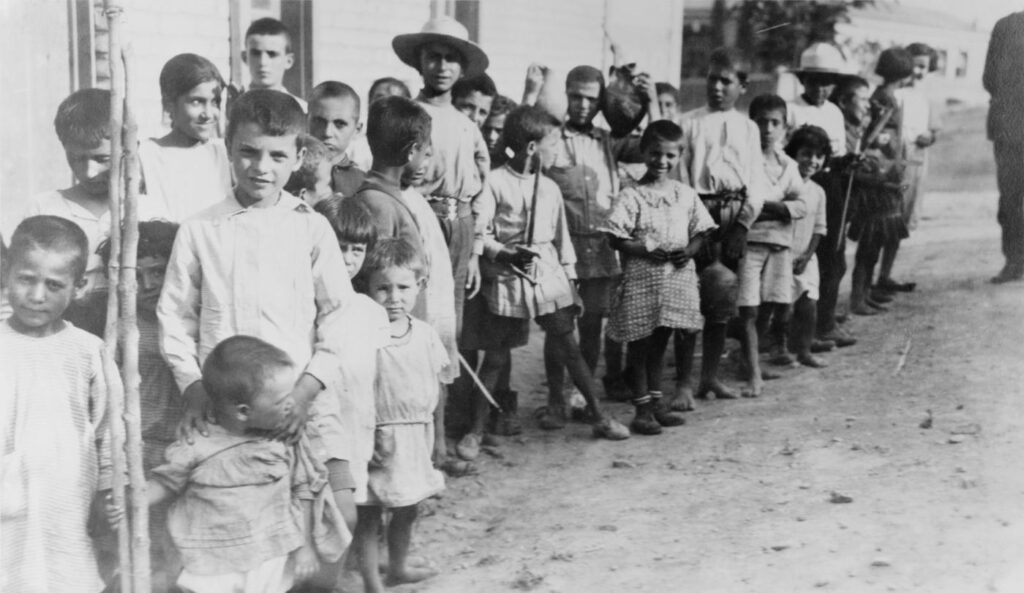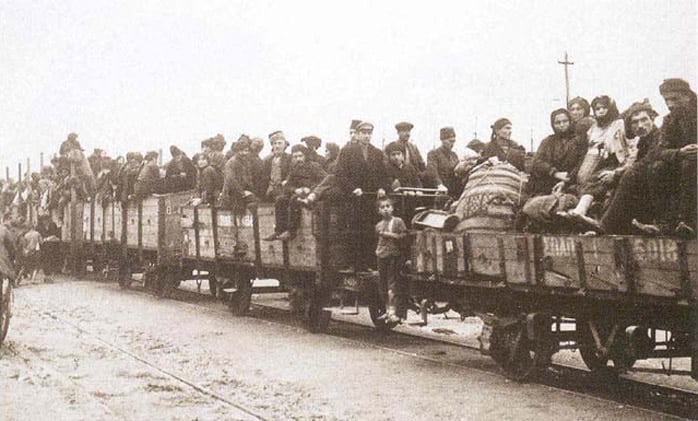Today, January 30th, marks a somber anniversary - 101 years since the Convention for the Exchange of Greek and Turkish Populations was signed between Greece and Turkey in 1923. This event, a consequence of the Greco-Turkish War (1919-1922), forced the migration of over 1.5 million Greeks from Turkey and nearly 500,000 Turks from Greece.
In total, over one million Greek Orthodox Christians from the Ottoman Empire, about 1.2 million, and 400,000 Muslims from Greece left their homes.
This population exchange was not the first such agreement but the first compulsory exchange. Turkish nationals of the Greek Orthodox religion and Muslim Greek nationals did not have the option to remain.

Further, Greek and Muslim refugees who had fled the Ottoman Empire and Greece, respectively, were not allowed to return to their homes. Only small populations of Greeks remained in Istanbul, Tenedos and Imvros and Muslims in Western Thrace were exempted from the treaty.

Esat Halil Ergelen, the general secretary of the Lausanne Exchange Foundation - an organisation dedicated to discussing the events of 1923 - belongs to an exchange family originally from Kavala in northern Greece.
“My grandparents took anything they could with them and took a ferry to Turkey. They never forgot Kavala and cried for their expulsion from their homeland," he told MEE. "My father was estranged from Kavala and refused to pay a visit there out of a desire not to revive the pains that his parents had to endure."
The arrival of the exchanged Greek Muslims in a newly Turkified Anatolia did not go smoothly either. They were settled in houses previously belonging to expelled Anatolian Christians. However, despite being branded Turks by the new nationalist government, many locals mistrusted them.
For those Muslims who spoke Greek as their first language, the situation was even worse. “Until the 1970s, the exchanged people had preserved their distance from the locals because they were not welcomed,” Ergelen said.
“'Son of a Greek’ was a famous swearword among locals, used against the exchanged.”

He said that integration took many, many decades and was particularly helped by the mass urbanisation of Turkey, which saw millions - both the exchanged and natives - moving to the cities from rural areas and adapting together to another new environment.
The Greek genocide was the systematic killing of the Christian Ottoman Greek population of Anatolia, which was carried out mainly during World War I and its aftermath (1914–1922) on the basis of their religion and ethnicity.
By late 1922, most of the Greeks of Asia Minor had either fled or had been killed. Those remaining were transferred to Greece under the terms of the later 1923 population exchange between Greece and Turkey, which formalised the exodus and barred the return of the refugees.

The Allies of World War I condemned the Ottoman government–sponsored massacres. In 2007, the International Association of Genocide Scholars passed a resolution recognising the Ottoman campaign against its Christian minorities, including the Greeks, as genocide.
READ MORE: Erdoğan: The conversion of Hagia Sophia into a mosque is a "Second Fall".

